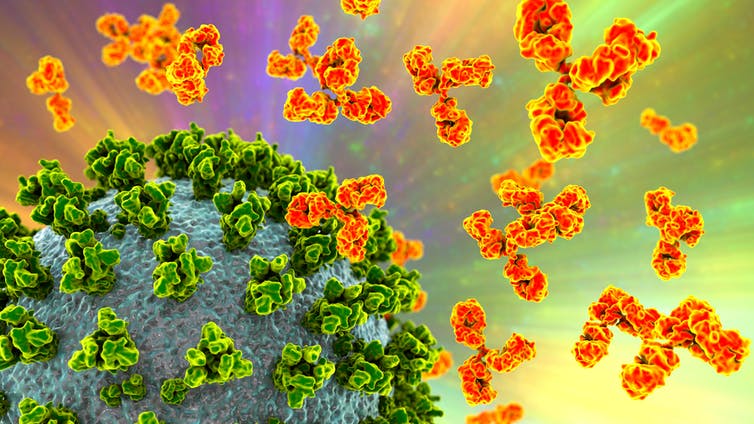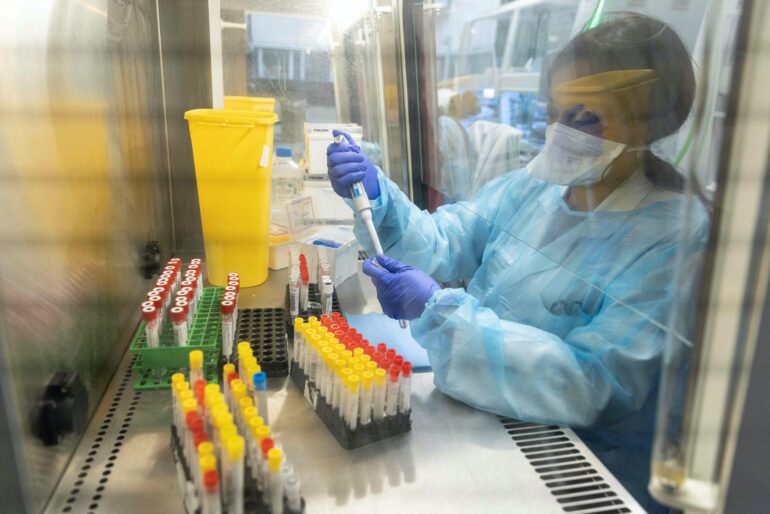Scientists around the world have been racing to learn more about the new omicron strain of SARS-CoV-2, first declared a “variant of concern” on Nov. 26, 2021 by the World Health Organization. Officials cautioned that it would take several weeks before they’d know whether the recently emerged coronavirus variant is more contagious and causes more or less serious COVID-19 than delta and other earlier variants, and whether current vaccines can ward it off.
Peter Kasson is a virologist and biophysicist at the University of Virginia who studies how viruses such as SARS-CoV-2 enter cells and what can be done to stop them. Here he explains what lab-based scientists are doing to help answer the outstanding questions about omicron.
Does prior immunity protect against omicron?
These are the key lab results everyone is waiting for: How effective are the antibodies people already have at fighting off omicron? If you got the booster shot, are you protected? Or if you had COVID-19 and then were vaccinated?

Will the antibodies people already have recognize and thwart omicron?
Dr_Microbe/iStock via Getty Images
The goal is to see how well antibodies from real people who have had COVID-19 or have been vaccinated against it can hold off omicron in petri dishes in the lab. Scientists expect that antibodies from people exposed to other variants won’t work as well against omicron because of its mutations, but they need to measure how much less well and whether it’s still enough to stop the virus.
To answer these questions, most researchers first make a version of the SARS-CoV-2 virus that can enter cells but not reproduce. A few specialized labs with extra levels of biosecurity use the actual virus. Scientists add antibodies from the blood of people vaccinated against or recovered from COVID-19 to the virus. They then mix this with human lung cells to see whether the antibodies can stop the virus from infecting the cells.
My laboratory performs this kind of work with SARS-CoV-2 and other emerging viruses. Researchers have used these well-established techniques to test out antibodies after COVID-19 recovery, as well as different vaccines and different variants.
If antibodies people made against prior variants can’t stop omicron from infecting lung cells in the lab, then those antibodies probably won’t protect people out in the world either.
The very first early results are starting to come back, and it looks like antibodies against earlier variants are less successful at blocking omicron. Researchers took antibodies from six people who each had two doses of vaccine and from six other people who each had two doses of vaccine and had also recovered from an earlier COVID-19 infection. Antibodies from both groups of people were about 40 times worse at stopping omicron than original SARS-COV-2 strains, based on how much antibody was needed to prevent infection. But the people whose immune systems had…



